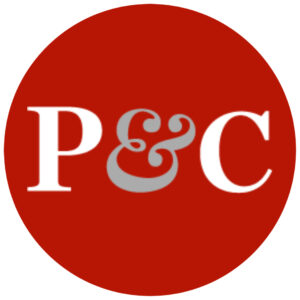“The Hard Sell – Crime and Punishment at an Opioid Startup,” a new, critically acclaimed book by Evan Hughes, tells the story of the rise of pharma company Insys through illegal kickbacks to doctors to increase prescriptions for Subsys, a powerful and addictive pain medication, and the role whistleblowers played in stopping Insys’s outrageous sales tactics. Subsys is a fetanyl-based liquid that users spray under their tongues.
As part of his research for the book, Hughes interviewed Maria Guzman, the first whistleblower to report Insys to the authorities by filing a qui tam lawsuit. Guzman is represented by Erika Kelton, a whistleblower attorney and partner at Phillips & Cohen, and attorney Mark Kleiman.
“Sex, money, luxury items – nothing was out of bounds in Insys’s efforts to persuade doctors to prescribe Subsys without consideration of what was best for patients,” Guzman said when her qui tam lawsuit was settled in 2018. “I could not keep silent, knowing how these off-label prescriptions endangered so many.”
Here are excerpts from a book talk by Hughes in which he discusses the important role Guzman and other whistleblowers played to stop marketing and sales tactics by Insys that endangered patients’ lives. (The questions have been paraphrased.)
How did the government find out about Insys’s off-label marketing and kickbacks schemes?
Evan Hughes: “I just mentioned that [Insys] gets a subpoena in 2013. That was the result of a secret lawsuit filed by a whistleblower at the company. She was one of my sources in the book. It was kind of exciting for me because she hadn’t spoken to any other media.”
“. . . A big phenomenon in the drug industry is that whistleblower lawsuits are a major enforcement tool. This is how a lot of this information comes to light, how these scandals get prosecuted.
“Actually in the law there’s an incentive that the whistleblower stands to share in any money that is recovered by the government.”
What was the role of whistleblowers in the Insys case?
Evan Hughes: “They [whistleblowers] played an incredibly valuable role. Mia is Mia Guzman. And she was the prime mover – the first whistleblower who sparked the investigation that eventually culminated in all of this.
“And as I said, this [whistleblowing] is common. It’s really like the law, the legal system in many ways relies on this because you are not going to get inside a company as an investigator. …Unlike Insys, [most companies are] generally lawyered up, they’re going to turn over the least possible information they can if the government comes calling. So it really relies on people on the inside.
“And it’s like a very lonely position to be in if you’re one of these whistleblowers. It all has to be in secret. You’re totally barred from discussing the case for years. . . . I was well into the process of reporting the book when it emerged who the whistleblower was. And it was Mia.
“This was like an incredible shock to me because I already knew a good friend of hers who was a co-worker who was a source – Tracy is her name, Tracy Crain – she’s in the book, a fellow sales rep. And Tracy would always talk to me about Mia. She was like, ‘Oh, you should call Mia! She would be great on this.’ And whenever I called Mia, she ignored me.
“Then finally I come to realize it’s because she had a pending [qui tam] lawsuit against the company. Then eventually after that, when [the court unsealed her qui tam lawsuit] she was able to speak, and I have a lot of gratitude to her for doing so.
“For any whistleblower, like I said, it’s so lonely because you’re involved in a company and at the same time she was collecting evidence against them. [Mia] was recording phone calls, she was recording meetings surreptitiously on her iPhone. She would have it beneath the table, and she had to be terrified of getting caught.
“She was actually alarmed not just at the bribery scheme and the marketing tactics but the atmosphere of sexual exploitation at the company. All of the top executives at the company were men. Many of the sales representatives were women. There were a lot of affairs within the company, and some pretty nasty behavior. She was able to put together a lot of evidence and come forward. By that time she had been terminated from the company, so that at least gave her some freedom to no longer be inside the belly of the beast, so to speak. But it’s a tough position to be in. It also has no guarantees of paying off.”
Watch the entire discussion of “The Hard Sell – Crime and Punishment at an Opioid Startup” by Evan Hughes.
If you have information about kickbacks, off-label marketing or other wrongdoing in the pharma industry and would like to learn how to blow the whistle safely and receive a reward, please contact Phillips & Cohen for a free, confidential review of your matter.

